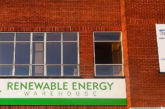
There are currently approximately 9 million hot water cylinders installed in homes across England, which means around 18 million homes may need to install a hot water cylinder in order for the UK to meet Net Zero.
The Hot Water Association (HWA) has highlighted what it terms “huge gaps” in government policy, which could result in unnecessary costs to consumers and the UK falling short of Net Zero or, at the very least, making it harder to reach.
A recent HWA report, No Place Like Home, comes with a stark warning for government to ‘do more’. Isaac Occhipinti, Director of External Affairs, HWA, commented: “The political focus of decarbonising heating has been solely on the heat source; such as boilers and heat pumps. There has been little to no focus on hot water cylinders, and recognition for the vital part they play in the efficient operation of low carbon heating. There is also, currently untapped potential for them to act as domestic batteries.
“To decarbonise heating, all UK homes will need low to zero carbon heating. Most, currently available, low carbon heating solutions require a hot water cylinder.
“With a gap of 18 million homes in England, it is clear that homeowners are not replacing or installing cylinders at the speed required to meet our decarbonisation targets. Also, where a hot water store has been removed the space is often repurposed for additional storage or bathrooms, and therefore re-introducing a hot water store can prove challenging.
“The Government must do more to educate homeowners, local authorities and social landlords on the need for hot water storage, and homeowners should be able to access incentives if they wish to replace their hot water cylinder with no stipulation on the type of system to be installed only that it is a suitable replacement. This will also mean that in the future the cost of moving to new heating systems will be reduced.
“In addition, the energy storage potential associated with the UK’s current installed capacity of domestic hot water cylinders is comparable to our entire fleet of pumped-hydro-electric storage and with just a fraction of this resource; it would be possible to absorb the largest surpluses of renewable power that arise from offshore wind and solar PV.
“If we do not invest in this untapped asset then it will become more expensive to upgrade homes to become ready for Net Zero. We also will not be able to take advantage of the current grid balancing potential of millions of hot water stores.”













